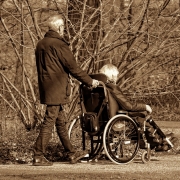Science Question Time | Report on Ageing Research
The COVID-19 pandemic has created unprecedented strain on health systems and societies around the world. It has shone a light on health inequalities and reinforced the importance of fostering health resilience. It has also highlighted the importance of scientific research to protect the health and wealth of societies. Read more







